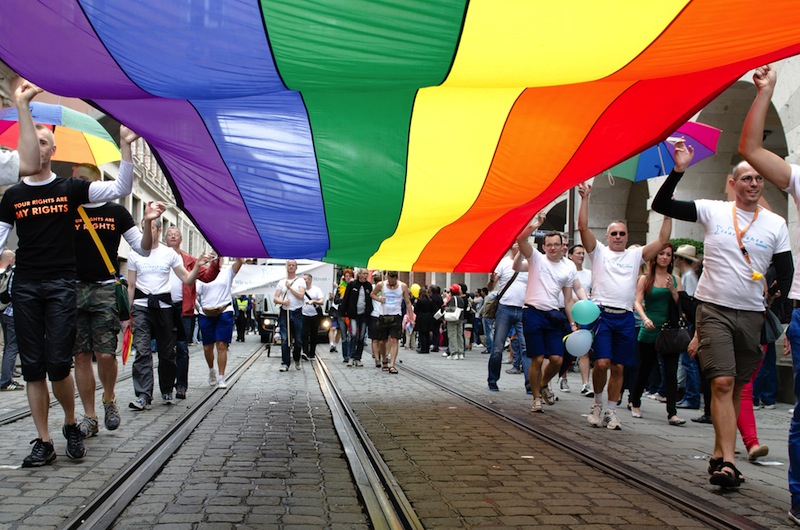Bisexuality Seen by Some As Illegitimate, Study Finds

Bisexuals are people who are sexually attracted to both men and women. But not everyone believes they exist, new research finds.
Nearly 15 percent of adults in a new survey declared bisexuality "not a legitimate sexual orientation," according to a study presented Tuesday (Nov. 5) at the annual meeting of the American Public Health Association in Boston. Straight men were the least likely to believe in bisexuals, but gay and lesbian participants also showed a thread of negativity toward bisexuality, the survey found.
About 1.8 percent of the U.S. population identifies as bisexual, according to a 2011 report by the University of California, Los Angeles' Williams Institute. Nevertheless, the orientation is often seen as a stopover on the way to homosexuality, or a way for those confused about their attractions to define themselves. In 2005, researchers studying bisexual men even suggested the identity didn't exist, and that bisexual men are simply gay men in denial. In 2011, the researchers who conducted that study reversed those findings after conducting research on a better-defined group of bisexuals.
Even though science has made strides in finally accepting bisexuality, public opinion still hasn't entirely caught up. Mackey Friedman, a researcher with the University of Pittsburgh school of public health, first surveyed hundreds of college students, asking them to free-associate words that came to mind in relation to bisexuality. "Confused," "experimental" and "different" were among the results. [5 Myths About Polyamory Debunked]
Next, Friedman and his colleagues used those responses to create a 33-question survey on attitudes toward bisexuality, which they administered to 1,500 people via the Internet.
They found that about 15 percent of the sample overall disagreed that bisexuality was a real sexual orientation. Straight men were three times more likely than any other group to disbelieve in bisexuality. Women, white people and people who identified as gay, lesbian or bisexual showed the least amount of anti-bisexual bias. However, the researchers cautioned, gays and lesbians were more negative about bisexuality than bisexuals themselves, suggesting that prejudice against bisexuality still exists in the gay community. Male bisexuals were viewed more negatively than female bisexuals. (Women are more likely than men to identify as bisexual.)
Stigma can make it hard for bisexual people to feel socially connected, Friedman said in a statement.
Sign up for the Live Science daily newsletter now
Get the world’s most fascinating discoveries delivered straight to your inbox.
"Having hard data to back up why a bisexual person might feel the need to be secretive about sexual orientation, something that can lead to higher depression and many other negative health outcomes, is very useful to people trying to fight stigma and marginalization," he said. "For example, this information can guide social marketing interventions and outreach to reduce that stigma, and improve rates of HIV prevention, testing and treatment within the bisexual community."
Follow Stephanie Pappas on Twitter and Google+. Follow us @livescience, Facebook & Google+. Original article on LiveScience.

Stephanie Pappas is a contributing writer for Live Science, covering topics ranging from geoscience to archaeology to the human brain and behavior. She was previously a senior writer for Live Science but is now a freelancer based in Denver, Colorado, and regularly contributes to Scientific American and The Monitor, the monthly magazine of the American Psychological Association. Stephanie received a bachelor's degree in psychology from the University of South Carolina and a graduate certificate in science communication from the University of California, Santa Cruz.









